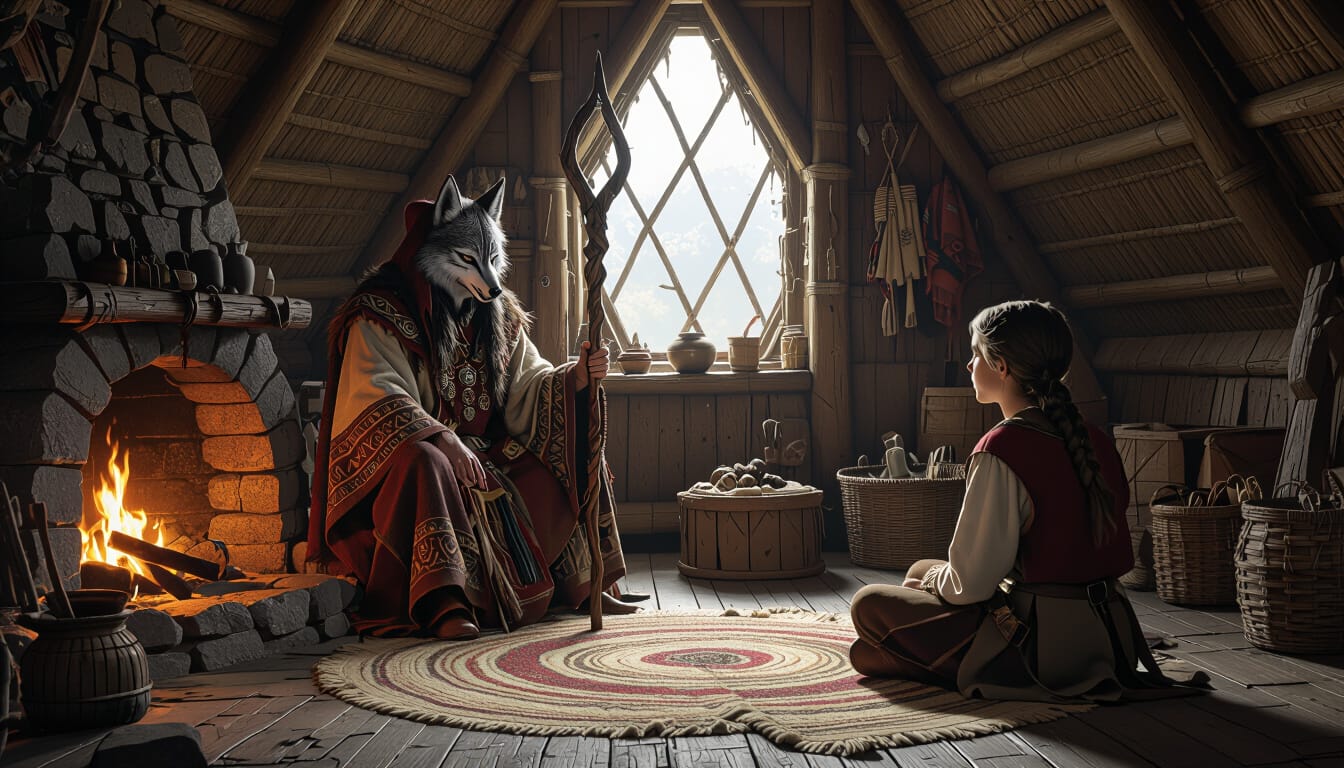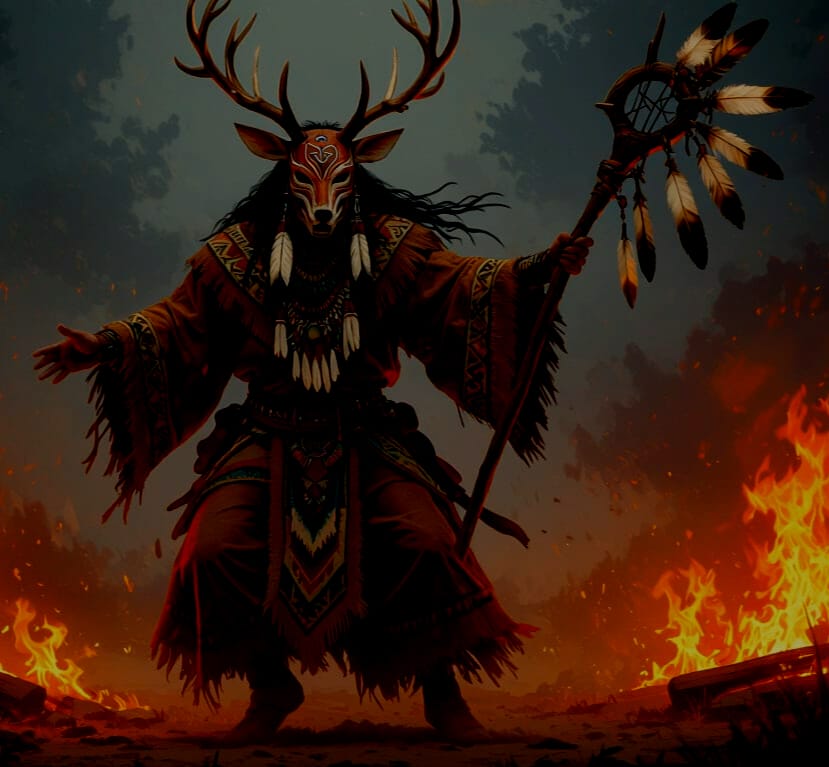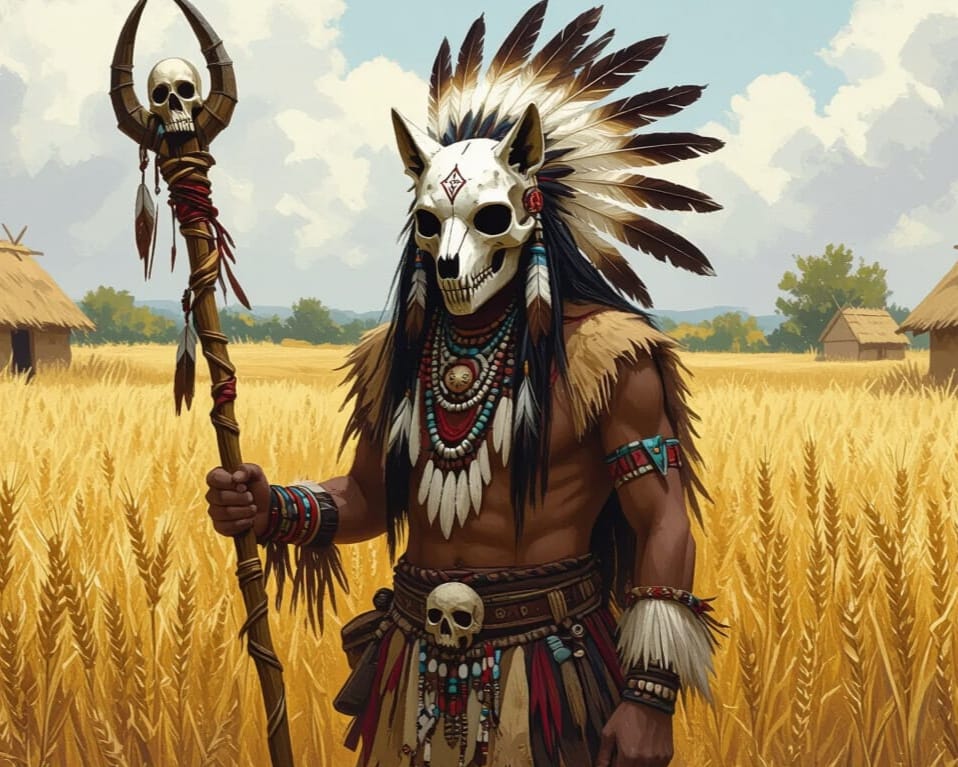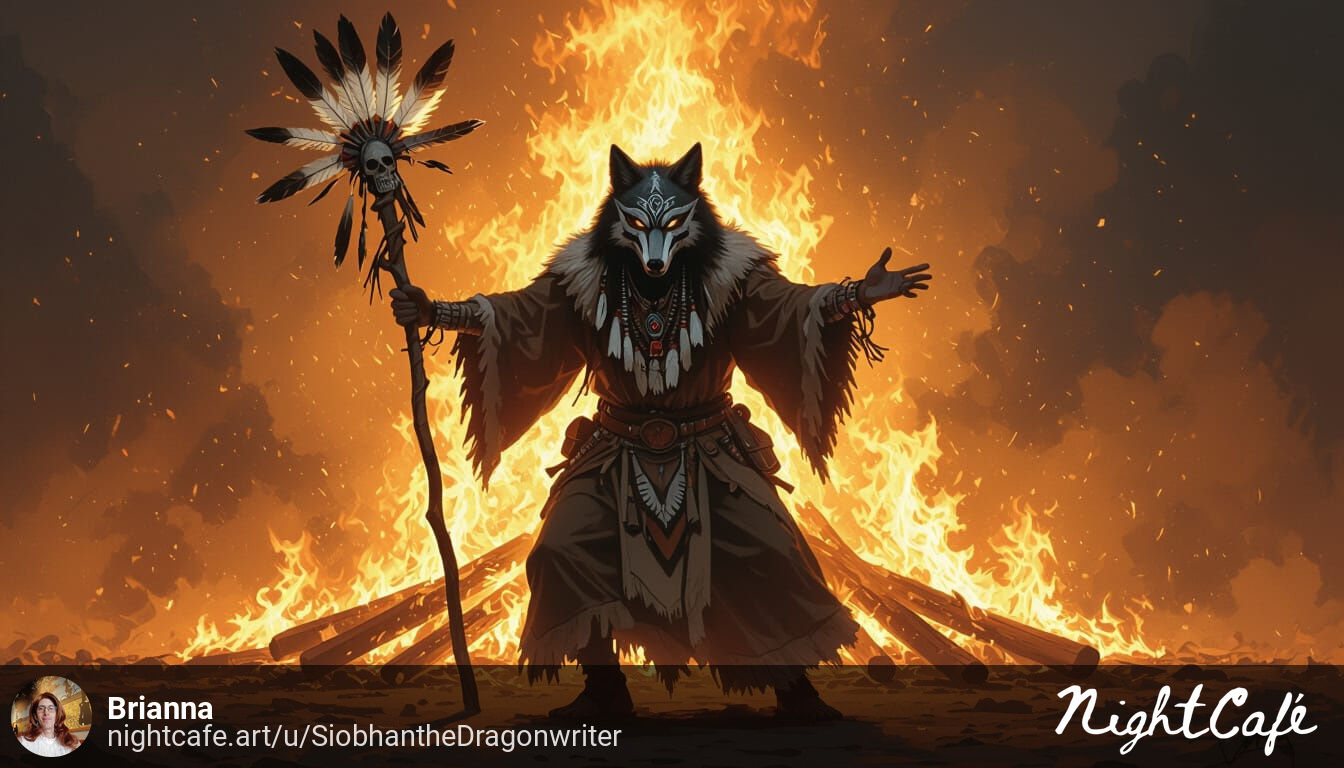Shaman
If you travel to Thormalk, respect their hunters, but fear the shamans. Unlike most humans, their magic can affect us. I have no idea how this is possible because I have not been able to study their magic. The shamans guard their magic fiercely. Only those who become shamans learn their secrets. In the past we tried to infiltrate the ranks of the shaman, however, we were never successful. I believe, and this is only a hypothesis on my part, that shamans somehow have a way to detect who is not human. Another possibility is we were not young enough for their testing. I would prefer not to consider forcing one of our children to become human only to gather information. I fear one that young would lose their sense of identity and find themselves locked into the human form.
Career
Qualifications
For those who wish to become shamans they must first pass a test to see if they even have the capability to sense magic. A shaman can manipulate more types of magic with proper training than is usually available to others. Once they have passed the screening test, they begin their tutelage.
Though being twinsouled is not a requirement, more shamans are twinsouled than not. For those who are, they tend to be more likely to delve into ancestral magic, calling on the ancestors and the dead for guidance.
Career Progression
Hopeful
Those who wish to become shamans need to be tested. This usually happens while they are still children, usually about age five to seven. Not all "Hopefuls" have considered becoming a shaman until they have been tested and find they have the capabilities necessary to progress. These few are offered the chance to become a shaman, which they have the option to turn down. Though they have the magical potential, they are not informed about it. The reasoning for this omission is the fact that a child of that age learning they have the ability to work magic without guidance is dangerous to both the child and those around them.
Initiate
Once a child has made the decision to become a shaman, they move into the shaman's dwelling and begin learning. It is at this time they are informed about their ability to manipulate the magical energies of the world around them. They learn how to harness the power of the wildlife and all growing things near them. The first practical application of this is their crafting of their first mask. These masks are crafted from smaller animals, such as rabbits which are appropriately sized for their faces. As they grow they begin learning to craft the robes of their profession. This stage usually lasts five to seven years.
Novice
Between the ages of twelve to fourteen they progress in the stage of a novice, having learned control and discipline. During this stage they learn about the local herbs and medicines. They begin creating potions and creams, infusing these with their magic as well. While they are training at this level, they learn to speak with the ancestors and the animals. This includes meditation, astral projection, and divination.
Shaman
For a novice to move up to a full shaman, they need to be a full adult, having passed all the tests required. These include speaking with the dead, their ancestors, and the animals of the land. Once they have achieved this position they are free to move to a new village or remain where they are and assist the local shaman, in turn becoming the shaman when the previous shaman passes away.
Payment & Reimbursement
As a shaman within a community, the community supplies everything the shaman needs to live, from food to shelter. This includes all the clothes they need for everyday life. A portion of every hunt is given the shaman as well, hides, sinew and bones. Shamans partake in everyday activities including planting, harvesting, and hunting.
Other Benefits
Within society a shaman is considered a teacher and guide. Due to this perspective, they receive more respect than the village elder, or the chief. However, this is not always the case, children often do not understand why the shaman or their initiate are deserving of respect, and because of this they can be cruel and taunt the shaman or their acolyte.
Perception
Purpose
As the spiritual and magical leaders, shamans provide guidance to those living in the village with them. They read "the bones" to divine whether it will be a good year for the village, whether that is in harvest, hunting, or growth. Villagers will come to the shaman for advice about romance, child-bearing, and survival. With their connection to the land, they were the ones to decide what type of hunt would happen. This is because they could sense when there was an overabundance of certain animals, such as wolves, deer, moose, or boars. It was the shamans who domesticated the wild aurochs of the plains into the cattle they have now.
Shamans are also the ones to preform weddings, as these are a binding of the life energies between those being wed. When the wedding involved someone who was pregnant, the unborn child's energy, which was linked to the "mother's" would become bound as well, thus creating a tighter family unit.
Shamans lead the festivals of the Thormalkian people. This is because most of the time Druids were not in the area. Because Druid visits to Thormalk were rare, the shamans became the go to leaders.
Social Status
Shamans are considered to be among the elite of Thormalkian society. This does not mean they have more than anyone else in the village or town, only that they are respected. When they spoke, their words are heeded. With their perceived position, they were asked to sit on the councils.
Demographics
There are about one in three thousand who are shamans. This makes them a small demographic within Thormalk. This ratio is actually smaller than the demographic of twinsouled individuals, who are roughly one in one hundred fifty people. Even with this small demographic they hold a larger number of high positions than the average citizen.
History
The shamans of Thormalk began before Thormalk was even a nation. That is, there were shamans throughout all of the human populations of Corrigenda. With the development of the nation of Thormalk, shamans became their leaders. Over the years, as the population grew, the shamans found they could not meet all the needs of their people as they once had. This led to the creation of the Council Hall of Thormalk and the Grand Council. This allowed the shamans to return to the duties they initially had.
As the population grew, so to did the ranks of the shaman. There is a shaman in almost every town and village now. This development reduced the need for shamans to travel in order to complete rituals and weddings.
Operations
Tools
Mortar and Pestles
Drying racks
Bones
Oils
Feathers
Flutes
Incense
Drying racks
Bones
Oils
Feathers
Flutes
Incense
Cauldron
Sickles
Leather
Yew, Oak, and Alder Staves
Skulls
Mushrooms
Sickles
Leather
Yew, Oak, and Alder Staves
Skulls
Mushrooms
Robes
Potion bottles and vials
Pigments
Beads
Drums
Rattles
Hallucinogenics
Potion bottles and vials
Pigments
Beads
Drums
Rattles
Hallucinogenics
Though this is an extensive list, it is not an exhaustive list. Individual shamans may change or add items depending on their personal choices or area of expertise.
Workplace
When entering the dwelling of a shaman, you will see jars filled with unknown substances covering tables, herbs hanging from the rafters. You need to delve deeper into their homes to find their true workshops. Hidden by magic, their workshops are added to the their dwelling after they move in. It is a large, underground room, accessible only with a magical key, tuned to the shaman's own magical signature. In this room there are many tables, covered in the tools of their trade. Drying racks for herbs and leather are likely to sit off to one side of the room. The walls, floor, and ceiling are covered with arcane symbols.








I definitely enjoyed this article. It was thoughtful and showed expertise and seemed to fit well into your world!
Follow my worlds: Arrhynsia and Eryia and check out my author website at tlcassis.com to see my latest novel and short stories!